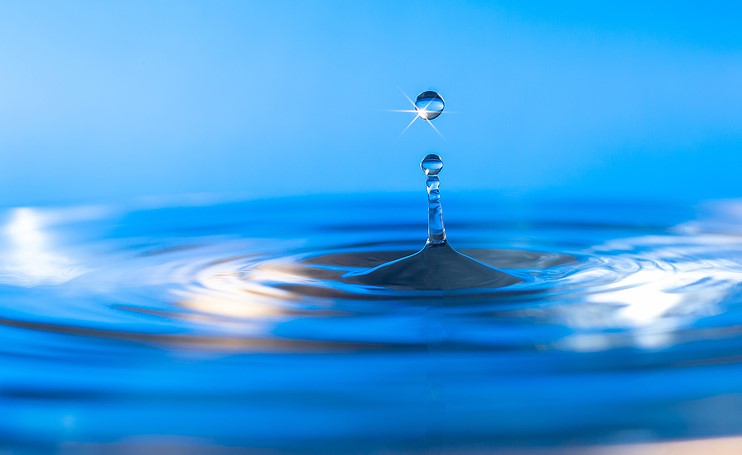News
Water Demand Forecast To Outstrip Supply By 2030
As the eve of the UN 2023 Water Conference fast approaches, taking place in New York between March 22nd and 24th, a new report has been published revealing that demand for freshwater will outstrip supply by 40 per cent come 2030… which means that urgent action must now be taken to overhaul wasteful activities and deliver a step change in how water is used.
Carried out by the Potsdam Institute for Climate Impact Research, the study marks the first time that global water systems have been looked at comprehensively, taking into consideration its value to nations all over the world – and the risks posed to national prosperity if water resources are neglected.
Speaking to the Guardian, lead author of the report and director of the institute Johan Rockstrom explained that the way water is being treated globally at the moment is leading to disaster and there is now “scientific evidence” that we are indeed in a water crisis.
“We are misusing water, polluting water and changing the whole global hydrological cycle through what we are doing to the climate. It’s a triple crisis,” he went on to say.
As such, it is now time for countries to come together and manage water as a global commons, the publication continues, important since the majority of nations are dependent on their neighbours for water supplies, which are being threatened globally by climate change, pollution and overuse.
Mr Rockstrom further observed that many governments around the world do not yet realise just how interdependent they are where water is concerned. Most countries depend on those next door for approximately half of their water supply, with evaporation of water (also known as green water) in neighbouring countries vital for local resources.
Green water is that which is held in the soil and delivered via forest and ecosystem transpiration, with plants taking their water from the soil and releasing vapour into the air from their leaves.
The publication went on to make seven key recommendations to address the situation:
- A global common good
The global water cycle should be managed as a common good and protected collectively for the shared benefit of all.
- Safe and adequate access
Every vulnerable group should be ensured safe and adequate access to water resources, with nations working collaboratively with industries to scale up water investment.
- Proper pricing
It is essential that countries stop underpricing water, ensuring that resources are priced properly and targeted support made available for poorer communities. This will enable efficient use of resources, as well as providing more equitable and sustainable supplies.
- Reduce subsidies and leakage rates
Curb excessive water consumption by reducing the $1 trillion or so agricultural and water subsidies that are seen each year, as well as targeting water leak reduction across global systems.
- Mobilise finance
Mobilise finance for low and middle-income nations by setting up ‘just water partnerships’.
- Take urgent action now
Urgent action must be taken within this decade to restore wetlands and groundwater resources, as well as focusing on water recycling, moving to precision agriculture and ensuring that companies publish their water footprints.
- International water governance reform
Water governance should be reformed at an international level, including water in trade agreements. This must also take women, farmers and indigenous people into account, as well as those at the forefront of water conservation around the world.
Discussing the climate crisis and the global food crisis, Mr Rockstrom made further comments, saying: “There will be no agricultural revolution unless we fix water. Behind all these challenges we are facing, there’s always water – and we never talk about water.
“It’s quite remarkable that we use safe freshwater to carry excreta, urine, nitrogen and phosphorus – and then need to have inefficient wastewater treatment plants that leak 30 per cent of all the nutrients into downstream aquatic ecosystems and destroy them and cause dead zones.
“We’re really cheating ourselves in terms of this linear waterborne modern system of dealing with waste. There are massive innovations required.”
The UN 2023 Water Conference
The fast-approaching UN 2023 Water Conference is being co-hosted by the Netherlands and Tajikistan at the UN headquarters in New York. The aim of the event is for it to serve as a true watershed moment for the climate crisis and drive global momentum forward to really prioritise the challenges presented by water.
A series of plenary meetings and interactive dialogues will make up much of the conference, with one of the main outcomes of the event intended to be the Water Action Agenda, delivering the political force that is necessary in order to get progress back on track where the climate emergency is concerned.
As it stands right now, there are more than 100 countries around the world that are not yet on track to ensure that sustainably managed water resources are delivered by 2030… the year that this latest report predicts that demand for freshwater will outstrip supply by 40 per cent.
This fact alone represents a serious threat to global food security, as well as the environment, health and economic growth. As such, making sure that international efforts are prioritised to deliver a water-secure world is now at the very heart of this year’s UN water conference.
Do you want to find out how you as a business can prioritise water efficiency and safeguard resources for future generations? Get in touch with the team here at H2o Building Services today to see how we can help you reduce your water footprint and start operating more sustainably now and well into the future.
